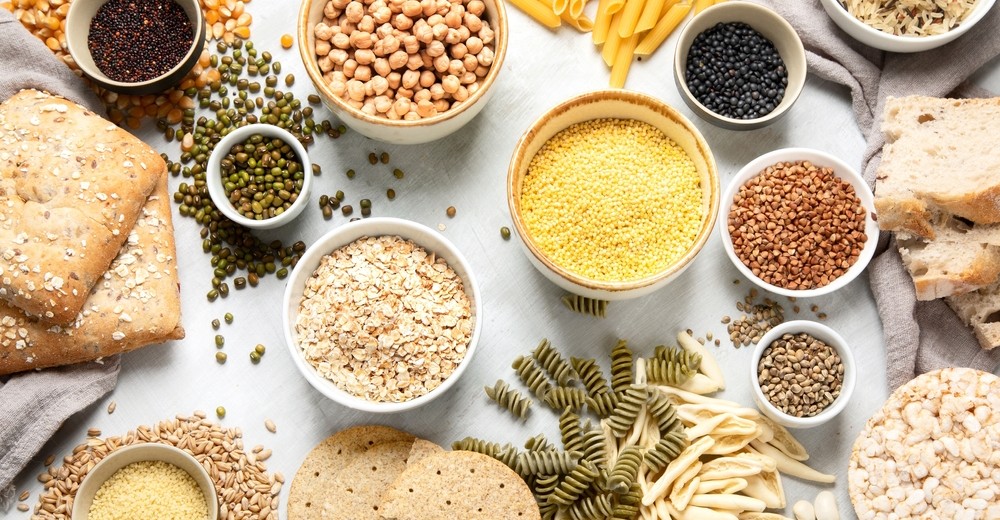Carbohydrates often get a bad rap when it comes to weight loss, but they’re not the enemy. In fact, carbs are an essential part of a balanced diet and can even support your weight loss goals when chosen wisely. The key is understanding the different types of carbs and how they affect your body. In this guide, we’ll explore the role of carbs in weight loss, how to choose the right ones, and tips to incorporate them into your diet effectively.
What Are Carbohydrates?
Carbohydrates are one of the three macronutrients (along with protein and fat) that provide energy to your body. They are broken down into glucose, which fuels your brain, muscles, and organs. Carbs are found in a wide variety of foods, including:
- Simple Carbs: Found in sugary foods like candy, soda, and pastries.
- Complex Carbs: Found in whole grains, vegetables, and legumes.
Understanding the difference between these types is crucial for weight loss.
The Role of Carbs in Weight Loss
Carbs play a significant role in weight loss, but their impact depends on the type and quantity you consume. Here’s how carbs can support your goals:
- Energy for Exercise: Carbs provide the fuel needed for physical activity, which is essential for burning calories.
- Fiber Content: Complex carbs are high in fiber, which keeps you full and supports digestion.
- Blood Sugar Control: Choosing the right carbs helps stabilize blood sugar levels, reducing cravings and overeating.
However, consuming too many refined carbs or sugary foods can lead to weight gain and hinder your progress.
How to Choose the Right Carbs for Weight Loss
Not all carbs are created equal. Here’s how to make smart choices:
1. Focus on Whole, Unprocessed Foods
- Why It Works: Whole foods are nutrient-dense and keep you full longer.
- Examples: Brown rice, quinoa, oats, sweet potatoes, and whole-grain bread.
2. Prioritize Fiber-Rich Carbs
- Why It Works: Fiber slows digestion, stabilizes blood sugar, and reduces hunger.
- Examples: Vegetables, fruits, legumes, and whole grains.
3. Limit Refined Carbs and Sugars
- Why It Works: Refined carbs are stripped of nutrients and can cause blood sugar spikes.
- Examples: White bread, pastries, sugary cereals, and soda.
4. Pair Carbs with Protein and Healthy Fats
- Why It Works: Combining carbs with protein and fats slows digestion and keeps you full.
- Examples: Pair oatmeal with nuts, or whole-grain toast with avocado and eggs.
Common Myths About Carbs and Weight Loss
Let’s debunk some common misconceptions:
- Myth 1: All Carbs Are Bad for Weight Loss
Not true! Complex carbs like vegetables and whole grains are essential for a balanced diet. - Myth 2: Cutting Carbs Completely is the Best Way to Lose Weight
While low-carb diets can work for some, they’re not necessary for everyone. Balance is key. - Myth 3: Carbs Make You Gain Weight
Excess calories, not carbs, lead to weight gain. Choosing the right carbs can actually support weight loss.
Tips to Incorporate Carbs into Your Weight Loss Plan
Here’s how to make carbs work for you:
- Start Your Day with Complex Carbs: Choose oatmeal, whole-grain toast, or fruit for breakfast.
- Add Veggies to Every Meal: Fill half your plate with non-starchy vegetables like broccoli, spinach, or zucchini.
- Snack Smartly: Opt for fiber-rich snacks like apple slices with peanut butter or carrot sticks with hummus.
- Read Labels: Avoid foods with added sugars and refined flours.
Sample Meal Plan with Balanced Carbs
Here’s an example of a day’s meals that include healthy carbs:
Breakfast:
- Oatmeal topped with berries and a sprinkle of chia seeds.
Snack:
- A small handful of almonds and an apple.
Lunch:
- Grilled chicken salad with mixed greens, quinoa, and olive oil dressing.
Snack:
- Greek yogurt with a drizzle of honey and a handful of granola.
Dinner:
- Baked salmon with roasted sweet potatoes and steamed broccoli.
Dessert (Optional):
- A square of dark chocolate or a small bowl of fruit.
The Role of Carbs in Long-Term Weight Management
Carbs are not just for short-term weight loss—they’re essential for maintaining a healthy lifestyle. Here’s why:
- Sustained Energy: Carbs provide the energy needed for daily activities and exercise.
- Nutrient Density: Whole carbs are packed with vitamins, minerals, and antioxidants.
- Satiety: Fiber-rich carbs keep you full, reducing the temptation to snack on unhealthy foods.
Carbs and weight loss can go hand in hand when you make smart choices. By focusing on whole, fiber-rich carbs and avoiding refined sugars, you can fuel your body, stay full, and achieve your weight loss goals.
Remember, balance is key. Start small, stay consistent, and enjoy the process of discovering new ways to make carbs a delicious part of your daily routine. With the right approach, you’ll see the results you’re working toward.



